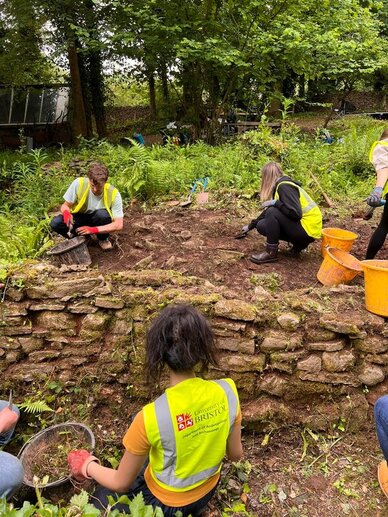|
By Dave Gilbert This week saw the start of Bristol University’s departmental excavation at a site near Alveston, South Gloucestershire, which forms part of the University’s South West Anarchy Research Project. Red River Archaeology are providing experienced archaeologists to undertake the training of the students as part of their Chartered Institute for Archaeologists accredited BA in Archaeology and Anthropology. The Anarchy period lasted from 1135 until 1153 CE when Empress Matilda and King Stephen fought for the united throne of England and Normandy. With the death of Henry I’s legitimate son and heir, William Adelin, in a shipwreck in 1120 Henry sought to ensure his daughter, Matilda, was recognised as his lawful heir. However, when Henry died in 1135 his nephew Stephen of Blois seized the throne with the backing of the Church. The then pregnant Matilda was in Normandy, and it wasn’t until 1139 that she was able to launch a campaign to retake her throne, with the ensuing conflict plunging the country into civil war. The fieldwork forms part of the University’s compulsory six-week training in archaeological survey, excavation, and post-excavation methodologies, as well as heritage and community engagement. Supervised by professional archaeologists the excavation of the building complex in Lower Hazel will provide undergraduate students with practical archaeological skills and experience as they investigate the social dynamics of the Anarchy Period in the southwest of England through excavation and study of the buildings and the wider landscape.  All students will have their achievements recorded in a sector recognised BAJR skills passport that will demonstrate their practical skills alongside their academic qualifications to open doors for their future careers. Follow #HARP22 and #bristol_SWARP for further updates.
0 Comments
Your comment will be posted after it is approved.
Leave a Reply. |
Categories
All
|
|
|
|
|
|
|
RED RIVER ARCHAEOLOGY
|
